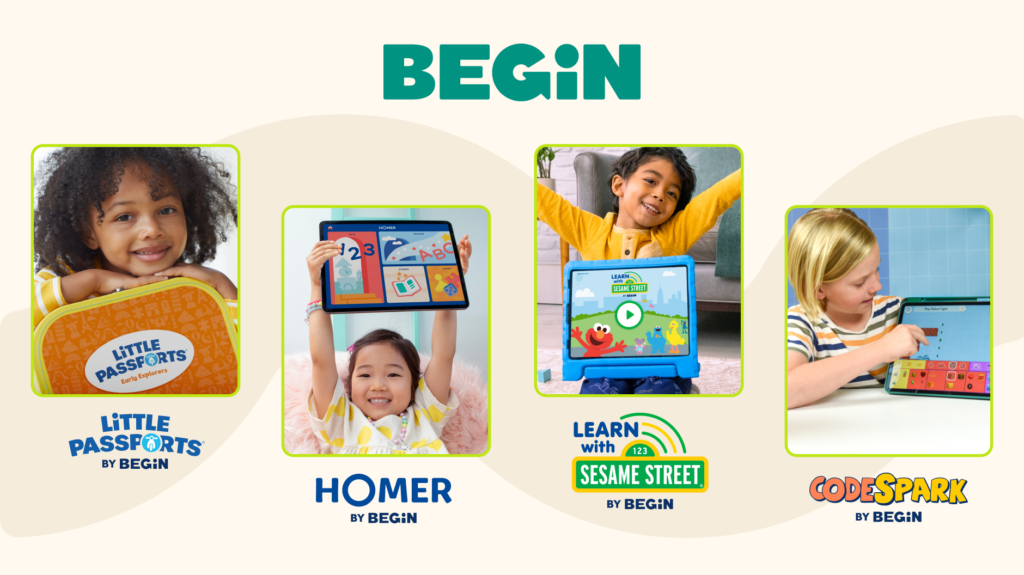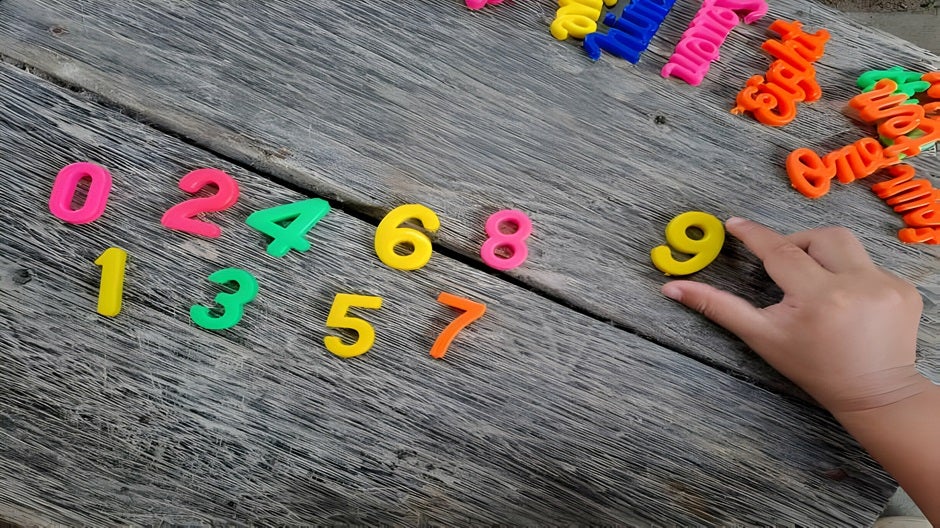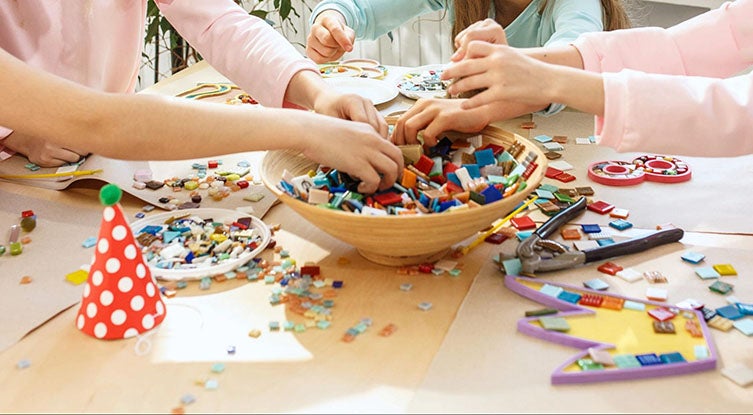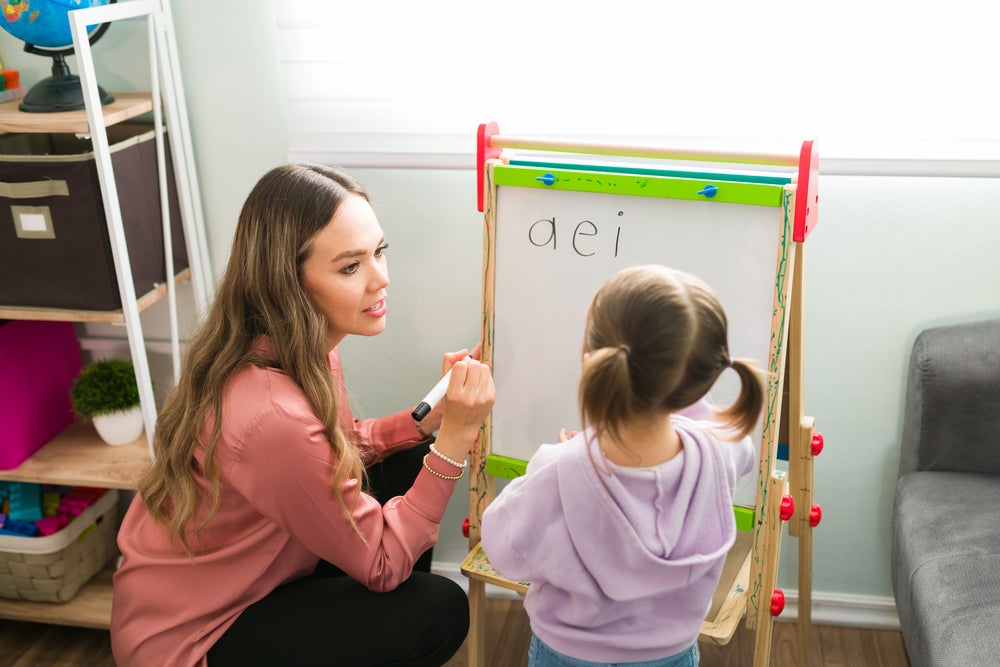Learning to read is one of the most exciting milestones your child will achieve. But it doesn’t happen overnight. There are a number of learning steps they must take on their path to literacy. One of the foundations of reading is a skill called phonemic awareness.
In this article, we’ll teach you what phonemic awareness is and how you can help your child practice this essential skill.
The Short Cut
- Phonemes are the smallest sound units that make up the words in a language, like /a/ and /c/.
- Phonemic awareness is a child’s ability to identify and manipulate phonemes.
- Parents can help kids develop through the five levels of phonemic awareness with rhyming and games that encourage sound recognition.
- A play-based learning subscription membership can also help kids develop phonemic awareness at the right time and in the right way.
Table of Contents
- What Is Phonemic Awareness?
- Why Is Phonemic Awareness Important?
- When Do Children Develop Phonemic Awareness?
- The Difference Between Phonemic Awareness and Phonics
- Developing Phonemic Awareness: A Stage-by-Stage Approach
- 5 Skills to Encourage Phonemic Awareness
- Technology for Learning Phonemic Awareness
What Is Phonemic Awareness?

So, what exactly is phonemic awareness? Phonemic awareness is a subset of something called phonological awareness, or the ability to hear and manipulate sounds of spoken words.
A child with phonological awareness can do things like break down sentences into words, recognize rhymes, identify syllables, and appreciate alliteration.
Phonemic awareness is the next step, taking these skills a little further. It is, in fact, the most advanced stage of phonological awareness.
To gain phonemic awareness, not only does your child need to hear and manipulate sounds, but they must do it with the smallest unit of sounds, called phonemes.
Phonemic Awareness Examples
So how will you know that your child has developed phonemic awareness? Here are a few ways children can show mastery of this skill:
- Identifying the words in a sentence that begin with the same sound (for example, in “The rat ran across the road in the rain,” rain, rat, ran, and road all begin with /r/ )
- Separating the first and last sounds of words (for example, the beginning sound in rat is /r/ and the last sound in rat is /t/)
- Putting sounds together to create words (for example, the sounds /r/, /a/, and /t/ make the word rat)
- Separating a word into its component sounds (for example, rat is made up of the sounds /r/, /a/, and /t/)
Why Is Phonemic Awareness Important?
In a nutshell: reading.
As a parent, you can’t wait until your child can pick up a book and embrace the magic of reading. And, again, phonemic awareness is one of the essential building blocks to get them there.
With phonemic awareness, your child will be better prepared for many essential reading and writing skills. Let’s take a look.
Decoding Texts
Identifying and using the individual sounds that comprise a word means your child will be on their way to decoding, which is the ability to match sounds and letters. Using their knowledge of phonemes, they can blend sounds to read a word.
For example, when your child sees the word “cat,” they can decode it when they know it has three distinct sounds—/k/ /a/ /t/—that combine to make the word cat.
Spelling
With a strong basis in phonemics, your child will be better able to correlate the sounds to the individual letters that make up a word. If they can segment a word on the basis of sound, they will be better able to spell the word.
Vocabulary
If your child can break unfamiliar words into phonemes, this skill will help them remember and recognize a word, thus expanding their vocabulary.
Reading Comprehension
Understanding word sounds will help your child decode unfamiliar words, which in turn will help them become a more fluent reader.
Early Literacy
Studies show that phonemic awareness is a predictor of a child’s future ability to read and spell. That means investing time in honing your child’s speech-sound awareness may have major benefits down the line.
The better your child’s phonemic awareness, the more they will be ready to start reading and, soon, reading to learn.
When Do Children Develop Phonemic Awareness?
Although there’s no hard and fast rule on the age at which children gain their phonemic awareness, most children will develop the related skills between three to four years old and six years old.
Your child will acquire their skills over time. By four years old, they may recognize rhymes and syllables. And then, by age six, they’ll begin isolating and blending sounds.
The Difference Between Phonemic Awareness and Phonics

There’s another “P” term that often gets confused with phonemic awareness: phonics. However, phonics actually comes later in the learning process.
First, children gain phonemic awareness—hearing and understanding individual sounds in a word—and then they learn to apply the sounds to written letters (phonics).
While phonemic awareness is 100% auditory, phonics is all about the relationship between sounds and written letters.
If we go back to our example of the word night, which has three phonemes (/n/ /ai/ /t/), phonics would teach your child how the group of letters igh corresponds to the single sound, allowing them to decode and better understand written text.
But we’re jumping ahead of ourselves—phonics comes after phonemic awareness. As they say, first things first.
Developing Phonemic Awareness: A Stage-by-Stage Approach
Since kids don’t instinctively know how to recognize phonemes, phonemic awareness must be taught intentionally.
Once they learn two-phoneme words, like am and it, kids can move on to three- and four-phoneme words. As they progress, they’ll learn these six skills:
- Isolation: recognizing individual sounds in a word (rat breaks down into three sounds—/r/, /a/, and /t/).
- Blending: hearing a sequence of separate sounds and combining them (/r/, /a/, and /t/ make the word rat).
- Segmentation: breaking down a word into its individual sounds and counting how many there are (rat is made of three sounds).
- Addition: adding a sound to a word to make a new one (adding /s/ to top to create stop).
- Deletion: removing a sound in a word to create a new one (removing /s/ from stop to create top).
- Substitution: swapping one sound for another to create a new word (replace /r/ with /b/ in rat to create bat).
5 Skills to Encourage Phonemic Awareness
Help your child get the hang of phonemic awareness by playing some fun games for practice!
1. Hearing Rhymes
By singing along to nursery rhymes with your child, you’re already encouraging their phonemic awareness!
Try making a game of creating rhymes using the beginning sound in a word. For example, you could start with the word rat. Your child might reply with the word hat. You can come back with bat, and so on.
2. Rhymes on the Road

Try an I Spy rhyme game while you’re in the car traveling somewhere. When you spot something, ask for a rhyme. “I spy a tree. What rhymes with tree?” Then you can ask your child to spy something for you to rhyme with!
3. Differentiating Rhymes
For this exercise, play a rhyme game. You’ll say three words, two that rhyme and one that doesn’t. Make sure you play up the silliness so your child understands that you made a mistake (one they will be confident they can fix).
If you want, you could use picture cards (there are some available that specifically target phonemic awareness development) and ask your child to find images of things that rhyme, like a cat, rat, and hat.
4. Producing Rhymes
To help kids learn to make their own rhymes, try saying a sentence and asking them to finish it with a word that rhymes. For example: “In my bag, I have a _ (rag).”
5. Recognizing Sounds
To help your child recognize a word’s beginning and ending sounds, try saying three words that begin or end with the same sound and ask your child what sound they hear. For example: leg, lamb, lint.
Technology for Learning Phonemic Awareness

Technology can also be a great way to help your child develop their phonemic awareness. With our award-winning HOMER app, for instance, your child can explore personalized reading games matched to their age and level—including phonemic awareness.
Using the app for just 15 minutes a day over six weeks has been proven to raise early reading scores by 74%!
Building Phonemic Awareness with Begin

Now that you know what phonemic awareness is, you can support your child using Begin’s phonemic awareness activities. Over time, they’ll grow the skills they need to learn how to separate sounds, sound out words, and ultimately learn how to read.
Spending time building this literacy foundation will benefit your child now and well into the future. And we can help! Our age- and stage-matched products incorporate the right learning at the right time and in the right way for every child.













